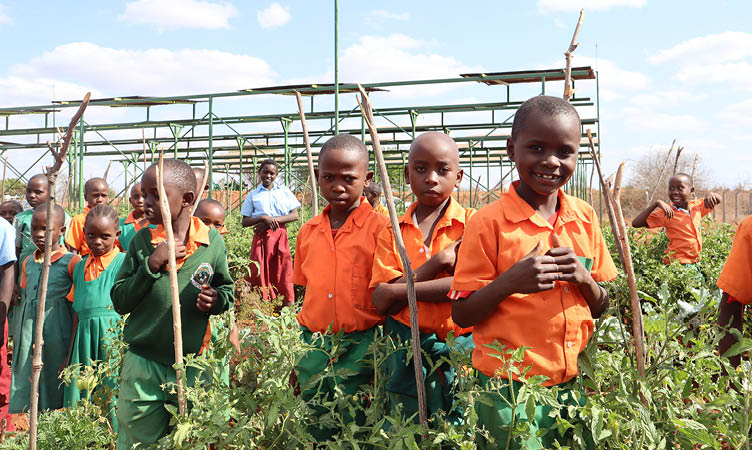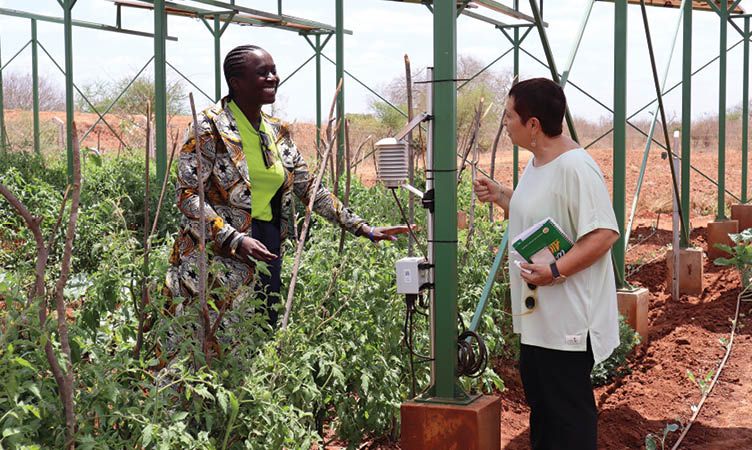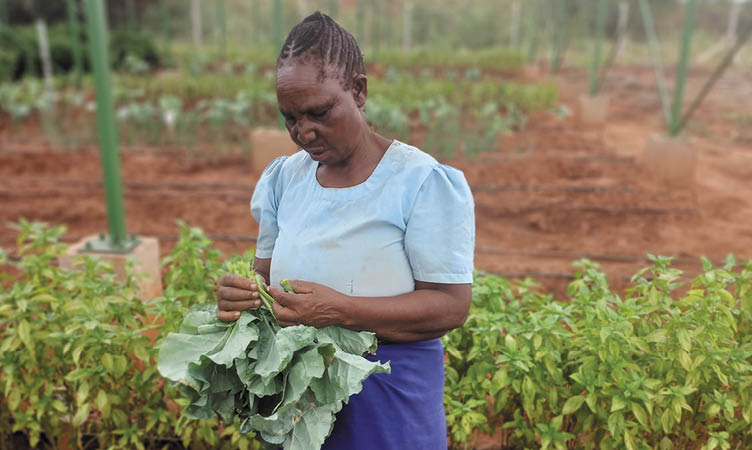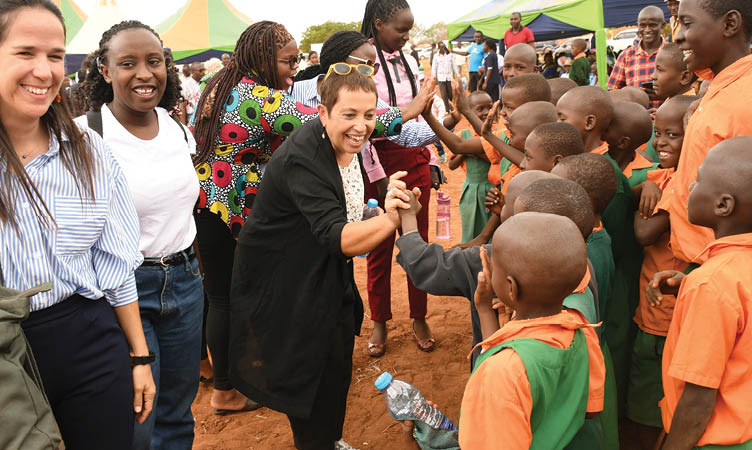Food security is not just three meals a day. Food security is independence, it is dignity, and it is humanity. As a Kenyan, I have witnessed the consequences of food poverty firsthand, and I also know that eradicating hunger will influence my country’s ability to grow and develop for the future. Agriculture is the backbone of our economy, but we still have a long way to go to achieve food security for all.
In my journey of trying to change this reality, I have had the life-changing opportunity to study in Israel at Jewish National Fund-USA’s supported Arava International Center for Agricultural Training (AICAT) and at Tel Aviv University, where I earned an Msc. in Plant Sciences. I knew that Israel had something unique to teach me about agriculture, but what I brought home was so much more than that. I came home with a belief in the power of innovation and a commitment to sharing everything I learned with others. More recently, I have played an active role in making a difference by serving as Jewish National Fund-USA’s Kasser Joint Institute for Food, Water, and Energy Security’s Field Manager for the pilot community-based Agrivoltaics project here in Kenya. That’s me in the photo on the bottom right, showing our work to Dr. Hani Arnon, founder of AICAT. Agrivoltaics is a revolutionary farming technique that uses solar panels to generate energy while providing shade for crops in harsh climates.
A year ago, the Joint Institute, in partnership with Makueni County government, launched the first community-based Agrivoltaics project in the remote Lower-Masimbani community. The launch brought a glimmer of hope to this rural community and, specifically, its school. The gap between the fast-paced, tech-driven world of our country’s capital, Nairobi, and the reality in rural communities like Makueni, where the project is located, is vast to say the least. Water, food and energy poverty are pressing, daily concerns.
Makueni is arid; its residents rely on sparse rainfall and local rivers for water for domestic use and agricultural production. The new ability to pump water from the river to the site using solar panels is revolutionary for the community. They are eager for the extension of this water flow to their farms. Every time I interact with community members, they ask when the water will reach the farms. At our current pace, we expect to see these results soon. Even more exciting for the community is the promise of the miracle of light. The community was settled in this region by the government in 1992, is still off-grid, and has been waiting for electricity, eager to enjoy its benefits.
As for the school, students interact with the Agrivoltaic site and learn from it daily, but the greatest impact is seen in its bounty. The harvested crops go to the school kitchen, bringing back the school food program that had come to an abrupt halt due to new government policies. The food program not only ensures that children are getting adequate nutrition, it has also been proven to increase school enrollment and attendance. Students now look forward to school and meal days are highly attended. What’s more, thanks to the Agrivoltaic solar panels, light (electricity) now shines on some classrooms for the first time.
The larger community is involved and eager to collaborate on this project. One of the greatest inspirations I took from Israel was the Moshav system, which relies on the kind of cooperation and collaboration that I see this community so ready to implement.
The hope that this project has bestowed on the community is a real gift. The people now see food, water, and energy security as a real possibility, and they are excited for a prosperous and self-sufficient future. Thanks to Jewish National Fund-USA and the Joint Institute, the people of Makueni believe that they soon will be a light unto their nation.
To learn more, visit jointinstitute.jnf.org




